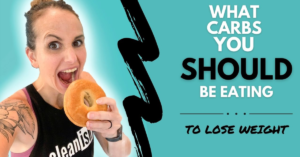If you’re wondering how to lose weight with hypothyroidism, you’re not alone. Many people struggle with weight loss and can’t find the right diet for their condition. Here are a few tips to help you lose weight safely and effectively. Among these are Fasting, eating a healthier diet, and avoiding foods that interfere with thyroid function. Fasting is especially helpful for those with a thyroid disorder, as it can help to eliminate food cravings and lead to a healthier lifestyle.
Lose Weight With Hypothyroidism Fasting
If you have an underactive thyroid, you may want to consider fasting to lose weight with hypothyroidism. You should be aware that this type of fasting can have some side effects, however. If you are concerned about your health, consult a doctor. For the most part, hypothyroidism is a treatable condition, but if it isn’t treated appropriately, it can lead to severe weight gain and depression.

Your healthcare provider may recommend that you eat smaller, more frequent meals in order to keep your blood sugar levels in balance. This will reduce your appetite and avoid high-carb, high-calorie meals. If your thyroid level is low, consider taking a Thyroid hormone supplement on an empty stomach first thing in the morning. This medicine should not be taken with any other medications. If you take it regularly, your healthcare provider may recommend a higher-intensity strength-training regimen. Eating smaller, frequent meals is also beneficial for hypothyroidism.
While this method may help you shed excess weight, fasting is a challenge. If you have an underactive thyroid, you will find it difficult to lose weight, but intermittent fasting will improve insulin resistance and inflammation. Fasting may also improve your metabolism and make your condition more manageable. As long as you consult a physician, fasting can be a healthy alternative to losing weight. It’s important to monitor your progress by keeping track of your symptoms, including weight and thyroid levels.
Hyperthyroidism can also affect fasting. If you’re not sure whether fasting is safe for you, check with your doctor to determine if you need to take any special medications before Ramadan. Your doctor may prescribe oral medication for hypothyroid patients. It can be taken twice a day during Ramadan. If your condition is mild, you can skip the fast for a few days.
In addition to losing weight, hypothyroidism can cause you to gain a small amount of weight. Your BMR will return to normal levels after the treatment. In many cases, patients who undergo hypothyroidism will experience a loss of just a few pounds. If you gain 20 pounds or more, it’s important to have your thyroid checked and assess your diet, stress levels, and physical activity.
Avoiding processed foods
A healthy diet is crucial for those with thyroid disorders. It is important to keep your intake of sugar, fat, and processed foods moderate, but not to the point of being completely devoid of them. Many people are under the impression that they are getting enough nutrition from their daily diets, but this is not true. Many of these foods are full of preservatives and other chemicals that can damage your body.

Thyroid conditions are genetic and environmental. Your diet can affect your thyroid’s ability to produce hormones. However, there are many foods that are thyroid-friendly. For example, coffee is considered safe. Other foods, like sweet potatoes, can be included in a hypothyroidism diet. However, you should exercise moderation when eating processed foods, as they may contribute to high blood pressure.
When it comes to lose weight with hypothyroidism, the most important thing you can do is avoid highly processed foods. Foods that are high in fat and sugar are bad for the thyroid. This is because they can affect the absorption of thyroid replacement hormones. Soy-based foods also contain goitrogens, which interfere with the production of thyroid hormones. High-fat and sugary foods are the worst for people with hypothyroidism since they can slow the metabolism and make you gain weight.
The best way to avoid high-calorie, highly processed foods is to consume more foods with the proper amount of nutrients. Iodine is an essential mineral for the thyroid, and one-third of the world’s population struggles to get the recommended daily allowance. Iodine-rich foods are recommended by physicians. Other essential nutrients are selenium and zinc. These are found in foods like soybeans and lean meat.
In addition to avoiding processed foods, you should also limit sugary and starchy carbs in your diet. While they may be tempting, it is best to stick to foods that are high in nutrient content. This way, your body will be able to burn fat. A healthy thyroid will help regulate your hunger hormones and increase your energy levels. If you’re not able to lose weight through exercise, try time-restricted eating or intermittent fasting.
Avoiding foods that interfere with thyroid function
While it may sound difficult to avoid the sweeteners in your favorite ice cream, there are some things you can do to make it easier on your body. Avoiding dairy products is a good start, as it contains lactose and other added sugars that weaken your immune system. Also, dairy products contain lactose and casein, which can negatively impact thyroid function. Dairy products also spike your insulin levels and cause inflammatory markers, so choose an alternative, such as monk fruit. Wheat and gluten are also known to interfere with thyroid function, and these types of foods should be avoided if you are suffering from any of these disorders.
Vegetables and fruits are also good for your health, and your body can use more vitamins and minerals from them. Fruits and vegetables are high in vitamin C and fiber, which support brain and heart function and hormone balance. You can also reduce your intake of cruciferous vegetables, such as cabbage, cauliflower, and broccoli. Cruciferous vegetables contain naturally occurring chemicals known as goitrogens that may interfere with thyroid hormone production, so it’s important to avoid them completely.
While hypothyroidism is often hard to diagnose, a good diagnosis can help you take steps toward a healthier life. Thyroid hormones are necessary for the body’s energy level, and a proper diet is essential to keeping the thyroid healthy. To lose weight with hypothyroidism, it is important to limit foods that interfere with thyroid function, including soy, gluten, grapefruit juice, coffee, and grapefruit juice.
Consuming certain kinds of vegetables can also be problematic. Those with thyroid disease should limit their intake of cruciferous vegetables, especially broccoli. Despite their nutritious content, cruciferous vegetables can interfere with thyroid medications, lowering their absorption. In addition, dietary fiber can also affect thyroid medications. By limiting these foods, you can make your diet more satisfying, while avoiding thyroid medications and goiter-causing foods.
A diet high in fiber is important for people with hypothyroidism. High-fiber diets can improve digestive health and heart health. Fiber-rich foods can include fruits and vegetables, whole grains, beans, and pulses. You can also include healthy fats, such as olive oil and omega-3 fatty acids. Trans fats, however, should be avoided if you are trying to lose weight with hypothyroidism.
Exercise
Whether you’re suffering from thyroid disease or have never been diagnosed, you may be wondering if it’s safe to exercise while taking thyroid medication. While thyroid medication is not the best option for weight loss, it can improve your mood and help you exercise safely. Moreover, exercise increases the production of endorphins, which are neurotransmitters that carry electrical signals throughout the body. These hormones reduce pain perception and modulate appetite, improve mood, and even reduce stress and anxiety. Exercise also improves cardiovascular health, which is important for peopleLose Weight With Hypothyroidism since high cholesterol levels increase your risk of heart disease.
People with hypothyroidism tend to have fatigue, joint aches, and muscle pain, so exercising can help them prevent and manage weight gain. According to the CDC, a person with this condition should engage in 150 minutes of vigorous aerobic exercise each week and 75 minutes of strength training at least twice a week. However, if you’re a beginner to exercise, there are some tips you can follow to keep going even when you’re hypothyroid.

One of the first tips you should remember when it comes to exercising while you have hypothyroidism is to start slowly and gradually. Exercise helps build muscle and decreases the risk of muscle cramps. It also burns more calories than fat, so you’ll lose weight faster. Moreover, it helps improve your cardiovascular fitness and reduce your chances of suffering from secondary complications caused by obesity. You can start with a low-impact exercise to begin.
You can begin with walking or any other form of low-impact activity that gets your heart rate up. Walking or bicycling is a great way to start a workout routine and burn 280 calories per hour. You can also try water aerobics if you suffer from swelling or joint pain, as the water reduces the impact on joints. If you’re not able to exercise on land, yoga or pilates may be the best choice. Strength training exercises can also help you develop lung strength and stretch your muscles. Tai chi is an excellent form of low-impact aerobic exercise that can be done while you rest.
Another good way to exercise while hypothyroidism is by reducing your stress levels. Exercise increases metabolism and helps you feel better. Try to exercise at least 30 minutes per day. A fitness professional can advise you on exercises that are safe and effective for people with hypothyroidism. For women, menopause can make the condition worse. It is recommended to take care of yourself while you’re going through this time in your life.




